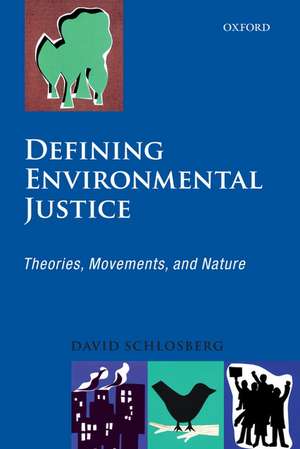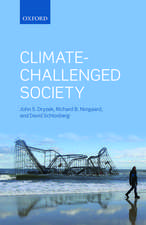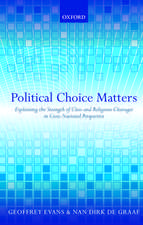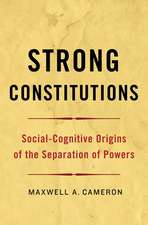Defining Environmental Justice: Theories, Movements, and Nature
Autor David Schlosbergen Limba Engleză Paperback – 5 mar 2009
Preț: 350.86 lei
Preț vechi: 408.88 lei
-14% Nou
Puncte Express: 526
Preț estimativ în valută:
67.15€ • 69.84$ • 55.43£
67.15€ • 69.84$ • 55.43£
Carte tipărită la comandă
Livrare economică 01-07 aprilie
Preluare comenzi: 021 569.72.76
Specificații
ISBN-13: 9780199562480
ISBN-10: 0199562482
Pagini: 256
Dimensiuni: 157 x 233 x 14 mm
Greutate: 0.4 kg
Editura: OUP OXFORD
Colecția OUP Oxford
Locul publicării:Oxford, United Kingdom
ISBN-10: 0199562482
Pagini: 256
Dimensiuni: 157 x 233 x 14 mm
Greutate: 0.4 kg
Editura: OUP OXFORD
Colecția OUP Oxford
Locul publicării:Oxford, United Kingdom
Recenzii
Schlosberg's definition of environmental justice is theoretically grounded and empirically informed, resulting in a thorough and nuanced account... [T]he book is essential reading for researchers and students working on environmental justice, and will be of interest to justice theorists more generally... Schlosberg's account of environmental justice...is definitive.
David Schlosberg's Defining Environmental Justice is political theory at its best, providing an invaluable review of the contemporary literature, subverting traditional political categories and distinctions, and suggesting new directions for politics and policy.... Defining Environmental Justice breaks important ground not only in advancing political theory's engagement with nature but in crafting a theoretical and political framework that draws together moral consideration for nonhuman nature with environmental justice concerns... [Schlosberg] offers a powerful critique of liberal theories of justice and their often singular focus on distribution, offering a more inclusive notion of justice that embraces recognition, capabilities, and participatory democracy.
Defining Environmental Justice should be required reading for anyone interested in understanding the environmental justice movement. David Schlosberg's careful, thoughtful study makes sense of the often perplexing notion of justice at the heart of the movement. Drawing on and extending recent innovations in justice theory, he argues that the "justice" of environmental justice is best understood not as a unitary concept but as a set of multi-layered, interconnected discourses encompassing distributive issues, recognition, participation and community functioning. He further makes the provocative claim that this expansive, plural discourse of justice can usefully be applied to humans' relationship with nature itself. The result is a richly nuanced and insightful contribution to the literature on social movements, justice theory and contemporary environmentalism.
David Schlosberg's Defining Environmental Justice is political theory at its best, providing an invaluable review of the contemporary literature, subverting traditional political categories and distinctions, and suggesting new directions for politics and policy.... Defining Environmental Justice breaks important ground not only in advancing political theory's engagement with nature but in crafting a theoretical and political framework that draws together moral consideration for nonhuman nature with environmental justice concerns... [Schlosberg] offers a powerful critique of liberal theories of justice and their often singular focus on distribution, offering a more inclusive notion of justice that embraces recognition, capabilities, and participatory democracy.
Defining Environmental Justice should be required reading for anyone interested in understanding the environmental justice movement. David Schlosberg's careful, thoughtful study makes sense of the often perplexing notion of justice at the heart of the movement. Drawing on and extending recent innovations in justice theory, he argues that the "justice" of environmental justice is best understood not as a unitary concept but as a set of multi-layered, interconnected discourses encompassing distributive issues, recognition, participation and community functioning. He further makes the provocative claim that this expansive, plural discourse of justice can usefully be applied to humans' relationship with nature itself. The result is a richly nuanced and insightful contribution to the literature on social movements, justice theory and contemporary environmentalism.

















